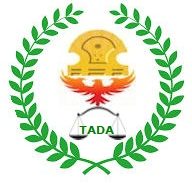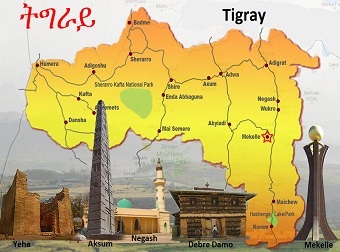Policy Recommendations for Tigray:
TADAUK.ORG
19/05/2024
Assuring Territorial Integrity and Building Cohesive Political Relations with Neighbors
Executive Summary
The region of Tigray, situated in the Horn of Africa, faces significant challenges in maintaining its territorial integrity and fostering stable political relations with its neighbors, including Ethiopia, Eritrea, Sudan, and Djibouti. The interplay of historical conflicts, ethnic tensions, and geopolitical interests has made this task particularly complex. To navigate these challenges, Tigray must adopt a comprehensive and strategic policy framework that emphasizes collaborative governance, transparent knowledge production, and proactive diplomacy. This document outlines detailed policy recommendations designed to assure Tigray’s territorial integrity and enhance political cohesion with its neighbors.
Introduction
The preservation of territorial integrity and the establishment of cohesive political relations are critical for the stability and prosperity of Tigray. The region’s geopolitical significance, coupled with the legacy of historical conflicts, necessitates a multifaceted approach that includes internal governance reforms, regional cooperation, and strategic international partnerships. This policy document proposes a four-step iterative process to address these challenges, focusing on managing geographic bias in research and fostering a culture of transparent and collaborative knowledge production.
1. Define the Problem
Establishing a Cross-Institutional Working Group
To effectively address the issues of geographic bias and territorial integrity, Tigray should establish a cross-institutional working group. This group will include representatives from the Tigray Government, Tigrayan diaspora, and think tanks involved in knowledge production. The primary objective of this working group will be to:
• Identify and define the specific challenges related to geographic seams and territorial integrity.
• Establish guiding principles and priorities for knowledge production and policy formulation.
• Develop initial action steps to address these challenges.
Sub-Working Groups
Within the main working group, sub-working groups should be created to enable focused discussions among different stakeholder communities. These sub-working groups will:
• Explore perceptions and assumptions about geographic bias within their respective communities.
• Provide detailed problem statements and preliminary recommendations.
• Facilitate cross-community understanding and collaboration.
2. Identify the Extent of the Problem
Rapid Evaluation of Knowledge Production
Once the working groups have produced their initial outputs, a rapid evaluation should be conducted to assess the extent of geographic bias in research and expert commentary produced by Tigrayan think tanks. This evaluation will establish two baselines:
1. Baseline for All Research Studies and Expert Commentary:
• Review all publications by Tigrayan think tanks to identify patterns of geographic bias.
• Analyze the geographic focus and scope of these publications.
2. Baseline for Government-Funded Research:
• Specifically examine publications funded by the Tigray Government.
• Assess the impact of government funding on the geographic focus of research.
Exploring Transparency and Funding Incentives
The evaluation should also explore existing policies related to transparency and metadata in knowledge production. This includes:
• Assessing the current levels of transparency in research methodologies and data sources.
• Identifying funding incentives that may influence the geographic focus of research.
• Recommending changes to enhance transparency and reduce bias.
3. Develop an Action Plan
Setting Clear Goals and Objectives
Based on the findings of the evaluation, the working group should develop a comprehensive action plan. This plan will outline short-term and long-term goals and objectives, including:
• Short-Term Objectives:
• Address immediate issues of geographic bias in ongoing research.
• Implement transparency measures in research methodologies.
• Initiate collaborations with regional think tanks to promote diverse perspectives.
• Long-Term Objectives:
• Establish a robust framework for continuous monitoring and evaluation of knowledge production.
• Foster sustainable funding models that encourage unbiased research.
• Develop educational programs to build capacity in unbiased knowledge production.
Prioritizing Activities and Allocating Resources
The action plan should prioritize activities based on their potential impact and feasibility. Key activities may include:
• Developing training programs for researchers on geographic bias and transparency.
• Creating a centralized database of research publications with metadata tags for geographic focus.
• Establishing a fund to support research on underrepresented geographic areas.
Setting Realistic Deadlines and Milestones
To ensure accountability and progress, the action plan should include realistic deadlines and milestones for each activity. This will involve:
• Setting quarterly and annual targets for specific outputs and outcomes.
• Monitoring progress against these targets and making adjustments as needed.
• Regularly reviewing and updating the action plan based on feedback and new insights.
4. Follow-Up and Review
Continuous Monitoring and Evaluation
The implementation of the action plan should be guided by the principle of continuous improvement. This will involve:
• Regularly monitoring the progress of activities and the achievement of goals.
• Conducting periodic evaluations to assess the effectiveness of the action plan.
• Gathering feedback from stakeholders to identify areas for improvement.
Learning and Adjusting
Whenever the achievement of goals and objectives goes off course, the working group should ensure that lessons are learned and adjustments are made. This will include:
• Analyzing the reasons for deviations from the plan.
• Implementing corrective actions to address identified issues.
• Sharing lessons learned with all stakeholders to promote continuous learning.
Additional Policy Recommendations
Enhancing Diplomatic Engagement
To foster cohesive political relations with its neighbors, Tigray should enhance its diplomatic engagement through the following measures:
• Bilateral and Multilateral Dialogues:
• Initiate and participate in bilateral and multilateral dialogues with neighboring countries to address common challenges and promote regional stability.
• Focus on issues such as border security, economic cooperation, and conflict resolution.
• Regional Cooperation Frameworks:
• Engage in regional cooperation frameworks such as the Intergovernmental Authority on Development (IGAD) , AU, UK, US & EU to strengthen political and economic ties.
• Advocate for regional initiatives that promote peace, security, and development.
• People-to-People Diplomacy:
• Promote people-to-people diplomacy by encouraging cultural exchanges, academic collaborations, and civil society partnerships.
• Facilitate cross-border community engagements to build trust and mutual understanding.
Strengthening Internal Governance
To ensure that Tigray’s internal governance structures support its territorial integrity and foreign policy goals, the following measures should be implemented:
• Decentralization and Local Governance:
• Strengthen decentralization processes to empower local governments and communities.
• Enhance the capacity of local governance institutions to address regional disparities and promote inclusive development.
• Rule of Law and Human Rights:
• Uphold the rule of law and protect human rights to foster a stable and just society.
• Implement mechanisms for accountability and transparency in governance.
• Economic Development:
• Promote economic development through strategic investments in infrastructure, agriculture, and industry.
• Encourage private sector participation and innovation to create job opportunities and improve living standards.
Conclusion
The challenges facing Tigray in maintaining its territorial integrity and fostering cohesive political relations with its neighbors require a comprehensive and strategic approach. By addressing geographic bias in knowledge production, enhancing diplomatic engagement, and strengthening internal governance, Tigray can navigate these challenges effectively. The proposed four-step iterative process provides a practical framework for achieving these goals, ensuring that Tigray remains a stable and prosperous region within the Horn of Africa.

